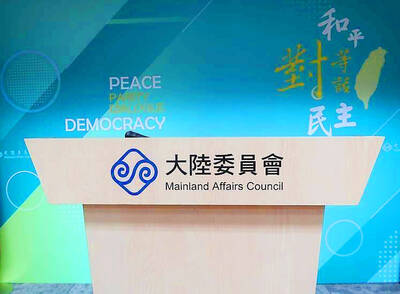Continuing a trend that has run for several quarters, Apple Computer on Wednesday reported a profit for the second quarter that beat even its expectations based on continued brisk sales of its iPod portable music player, as well as improving sales of Macintosh computers.
The company, based in Cupertino, California, saw revenue grow 70 percent in the second quarter, from US$1.91 billion to US$3.24 billion. Profit in the quarter was US$290 million, or US$0.34 a share, compared with US$46 million, or US$0.06 in the period a year ago.
The chief executive, Steve Jobs, called the quarter fantastic, and said that Apple was clearly picking up market share from Windows-based computers.
"IPods did very well but so did Macs," Jobs said in an interview, in which he tried to move the focus from Apple's success in the music business to its increasing success in selling Macs. "We had a fantastic Mac quarter."
Jobs said Apple saw a 43 percent increase in sales of Macs during the quarter, including strong demand for the new low-priced Mac mini. Today, Apple's share of the PC market is around 2 percent, but its sales are growing at a faster rate than the overall PC market. Macintosh business accounted for 52 percent of the company's total revenue.
Looking ahead to the third quarter, executives said they expected revenue of about US$3.25 billion and earnings of US$0.28 a share.
In the call with analysts, executives tried to temper investors' expectations going forward and warned that they did not expect Apple to sustain its record-high growth rates indefinitely.
The chief financial officer, Peter Oppenheimer, said that he expected revenue growth to eventually start to hover at a more reasonable 15 percent level, still higher than the industry average.

A Chinese aircraft carrier group entered Japan’s economic waters over the weekend, before exiting to conduct drills involving fighter jets, the Japanese Ministry of Defense said yesterday. The Liaoning aircraft carrier, two missile destroyers and one fast combat supply ship sailed about 300km southwest of Japan’s easternmost island of Minamitori on Saturday, a ministry statement said. It was the first time a Chinese aircraft carrier had entered that part of Japan’s exclusive economic zone (EEZ), a ministry spokesman said. “We think the Chinese military is trying to improve its operational capability and ability to conduct operations in distant areas,” the spokesman said. China’s growing

BUILDUP: US General Dan Caine said Chinese military maneuvers are not routine exercises, but instead are ‘rehearsals for a forced unification’ with Taiwan China poses an increasingly aggressive threat to the US and deterring Beijing is the Pentagon’s top regional priority amid its rapid military buildup and invasion drills near Taiwan, US Secretary of Defense Pete Hegseth said on Tuesday. “Our pacing threat is communist China,” Hegseth told the US House of Representatives Appropriations Subcommittee on Defense during an oversight hearing with US General Dan Caine, chairman of the Joint Chiefs of Staff. “Beijing is preparing for war in the Indo-Pacific as part of its broader strategy to dominate that region and then the world,” Hegseth said, adding that if it succeeds, it could derail

COMPLIANCE: The SEF has helped more than 3,900 Chinese verify documents, indicating that most of those affected are willing to cooperate, the MAC said More than 3,100 spouses from China have submitted proof of renunciation of their Chinese household registration, the Mainland Affairs Council (MAC) said yesterday. The National Immigration Agency has since April issued notices to spouses to submit proof that they had renounced their Chinese household registration on or before June 30 or their Taiwanese household registration would be revoked. People having difficulties obtaining such a document can request an extension of the deadline or submit a written affidavit in lieu of it. The council said it would hold a briefing at 2:30pm on Friday at the immigration agency’s Taichung office in cooperation with the

The government-funded human papillomavirus (HPV) vaccination is to be expanded to boys at junior-high school starting in September, the Health Promotion Administration (HPA) said yesterday. The Taiwan Society of Otorhinolaryngology, Head and Neck Surgery, the Taiwan Association of Obstetrics and Gynecology, the Taiwan Immunization Vision and Strategy, the Infectious Diseases Society of Taiwan, the Taiwan Head and Neck Society, the Formosa Cancer Foundation and the National Alliance of Presidents of Parents Associations held a joint news conference in Taipei yesterday to raise public awareness about the risks of HPV infection, regardless of gender. Invited to give an address, HPA Director-General Wu Chao-chun